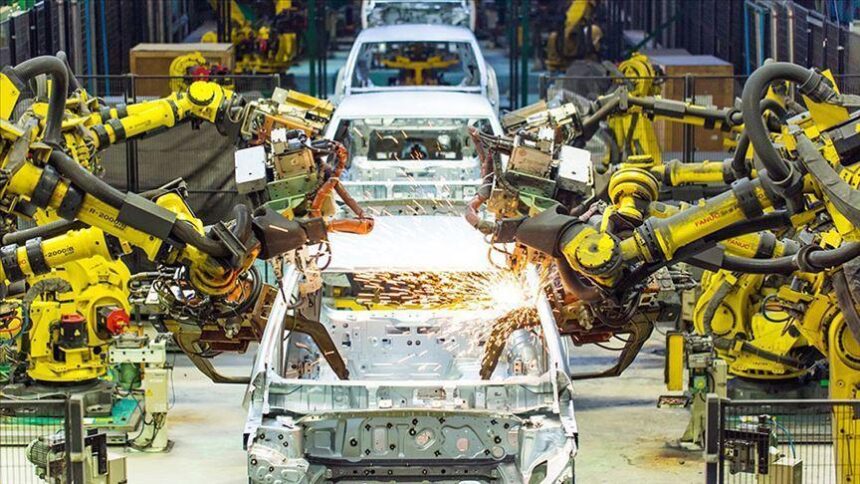BY KORAY OZTOPCU
Global dynamics are increasingly important to the development of the new automotive ecosystem and industry, driven by e-mobility, sustainability, and electric cars. While the global automotive industry is advancing amidst the negative impact of global problems, energy crises, supply chains, and chip crises, it also is trying to respond to the increasing mobility needs faced by the world today.
Within these global developments, the Turkish automotive industry continues to develop and maintain competitiveness in the European automotive industry.
68 YEARS OF MILESTONES IN THE TURKISH AUTOMOTIVE INDUSTRY
The genesis of the Turkish automotive industry was with the production of commercial vehicles in the 1950s and also moved on to automobile production in the 1960s.
- 1955: Commercial pickup trucks produced by Federal Turkish Trucks Inc. under the Federal brand.
- 1959: Otosan was established, the first step towards investments in automobile production.
- 1962: Federal Turkish Trucks AŞ and Magirus buses put into production.
- 1966: Otosan began to produce Anadol.
- 1968: Tofaş was established and, in 1971, the Murat 124 model began to be produced.
- 1969: Oyak Renault launched its first model, the Renault 12, in 1971.
During this period, Turkiye, which previously produced seats, upholstery, tires, rubber parts, and batteries, also started to produce engine parts, pistons, rings, valves, and gears. MAN, Otoyol Sanayi A.Ş., Karsan, Otomarsan, Genoto, Chrysler, BMC Industry and Trade Inc., and Taşıma Sanayii A.Ş. launched operations.
- The 1990s: The first domestically produced Opel models and Toyota Corolla hit the road.
- 1997: Honda Civic and Hyundai Accent production began for the first time domestically.
- 2019: the new domestic electric car, TOGG, was introduced to the public.
INDUSTRY IS INCREASING SHARE IN THE EUROPEAN MARKET
Turkiye has become one of the most important countries in Europe in terms of both supply and production in the automotive industry.
Undergoing a significant structural change in the last 20 years, the Turkish automotive industry has transformed into an industry aimed at exports to developed markets, while expanding its sustainable production competitiveness in the R&D field, and achieving the ability to design.
Exporting more than half of its production, the Turkish automotive industry also has a key position in Europe in terms of automotive sales.
According to the European Automobile Manufacturers Association (ACEA), there are 301 automobile assembly, battery, and engine plants in Europe, which includes EU countries, the UK, Turkiye, Belarus, Kazakhstan, Russia, Serbia, Ukraine, and Uzbekistan. There are 194 assembly and engine production facilities in the EU. Turkey is the fifth country in the European Continent and the fourth in the EU in terms of sales.
There are 134 passenger car factories, 41 light commercial vehicle (van) factories, 118 heavy vehicles and bus factories, and 72 engine factories in Europe.
The country with the highest number of vehicle facilities in Europe is Germany, with 44 facilities. This is followed by Russia with 33 facilities, France with 31, the UK with 31, Italy with 24, Turkey with 17, and Spain with 14 facilities.
Compared to EU members, Turkiye ranked fourth among the 17 countries on the list, along with Spain. The number of production facilities in Turkiye is more than in Poland and Czechia.
Considering those countries not included in the EU but are in Europe: the UK ranks second with 30 facilities and Turkiye third with 17 production facilities. Turkiye surpasses 13 EU countries, as well, in terms of facilities.
In 2021, Turkiye achieved 18.97 billion USD in exports with an increase of 11% compared to the previous year compared against EU countries. The country also ranked first with a share of 64.6% in exports on a country basis in automotive exports. From January-September 2022, exports by the automotive industry also increased, reaching USD 22.3bn.
European Union countries ranked first in terms of destination countries for exports, with a 64.6% share and an export volume of 1.76 billion USD in September. Exports to EU countries increased by 22%.
3.6 million vehicles were imported into the EU in 2021, and Turkiye’s share in this was the highest of all exporter countries.
EU-made cars, by the numbers
317,828 EU-made passenger cars were imported to Turkiye in 2021. Below you will find a detailed overview of the main destinations to which EU passenger cars were exported (in units).
CURRENT STATUS OF THE TURKISH AUTOMOTIVE MARKET, EXPECTATIONS FOR 2023
In the January-August period of 2022, Turkiye was the 6th country in Europe in terms of automotive sales.
From January to September of 2022, Turkey’s automobile and light commercial vehicle (LCV) total market decreased by 6.7% from 2021 with 520,530 units sold. Automobile sales decreased by 8.2% to 399,224 units, while the LCV market decreased by 1.7% to 121,306 units.
Further, in all EU, UK, and EFTA countries, the automotive market decreased by 13% to 8,524,314 units in total in the first 8 months of the year. The automobile market decreased by 11.8% and the LCV market by 22.6% in January-August 2022 period compared to the previous year. Total sales were 9,802,312 units in the same period of 2021.
Similarly, we see supply-driven declines in Europe’s largest markets. While the German automotive market contracted by 10.6% from 2 million units to 1.8 million units; the UK automotive market also decreased by 12.8% from 1.4 million to 1.2 million units. In France, with a similar drop of 15.5%, the market decreased from 1.5 million to 1.2 million units.
FINANCING THE NEW TURKISH AUTOMOTIVE ECOSYSTEM
Here at Garanti BBVA, we are financing the Turkish automotive industry with different products. Our slogan is, “We take good care of the world, we take good care of the future,” and to this end, we offer our individual and corporate customers environmentally friendly vehicle loans with free HGS at affordable interest rates. We are taking steps to quickly develop the financial ecosystem that would support a sustainable future, further mobility, and our 2053 carbon-neutral goal.
We offer passenger and commercial auto loan opportunities for our individual and commercial customers through our branches, Garantibbva.com.tr, the 444 OTOM telephone line, and through our Dealer Instant Loan (BAK) system. (Bak-OSS,One Stop Shop)
With our BAK system, we offer a fast and automated loan process with a minimum operational workload for auto sales from almost 800 dealers. Our business partners and dealers can finance new and second-hand auto loans for both automobiles and motorcycles with the assistance of Field Regional Managers and Central Sales Support teams. In addition, we also offer automobile and life insurance products to our customers that use vehicle loans with the BAK system.
Customers can execute all of their transactions at once, at a single point, with this system. They can use loans and initiate money transfers in a maximum of 30 minutes, without the need to go to Garanti BBVA branches. As a result of this service model, we continue to maintain our leadership among banks; we had a 30% market share at the end of the second quarter of 2022. With Stock Financing, Barter Financing, and Direct Collection System products for dealers and producers, we offer the opportunity to finance new and second-hand vehicles as well as spare parts that the dealers purchase at low cost. We’ve developed solutions tailored specifically to the sector. As an organization, Garanti BBVA will continue to offer new products and solutions for the automotive industry for a wide variety of needs through many different channels.
Today, due to increasing raw material shortages due to the Ukraine-Russia war, the global energy crisis, possible semiconductor supply problems that might arise as a result of the China-Taiwan tension, the damages in international commodity markets, and the negative impact of these damages on supply chains and logistics, change in the automotive industry appears to be stalling and a new ecosystem is yet to be formed. However, these challenges can also pave the way for new opportunities. Turkiye’s strong position in the global automotive industry will lead to increased market share and new opportunities in the market.










